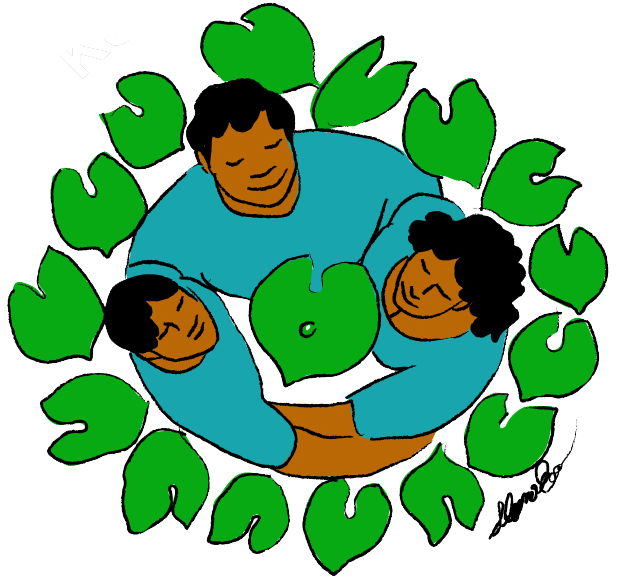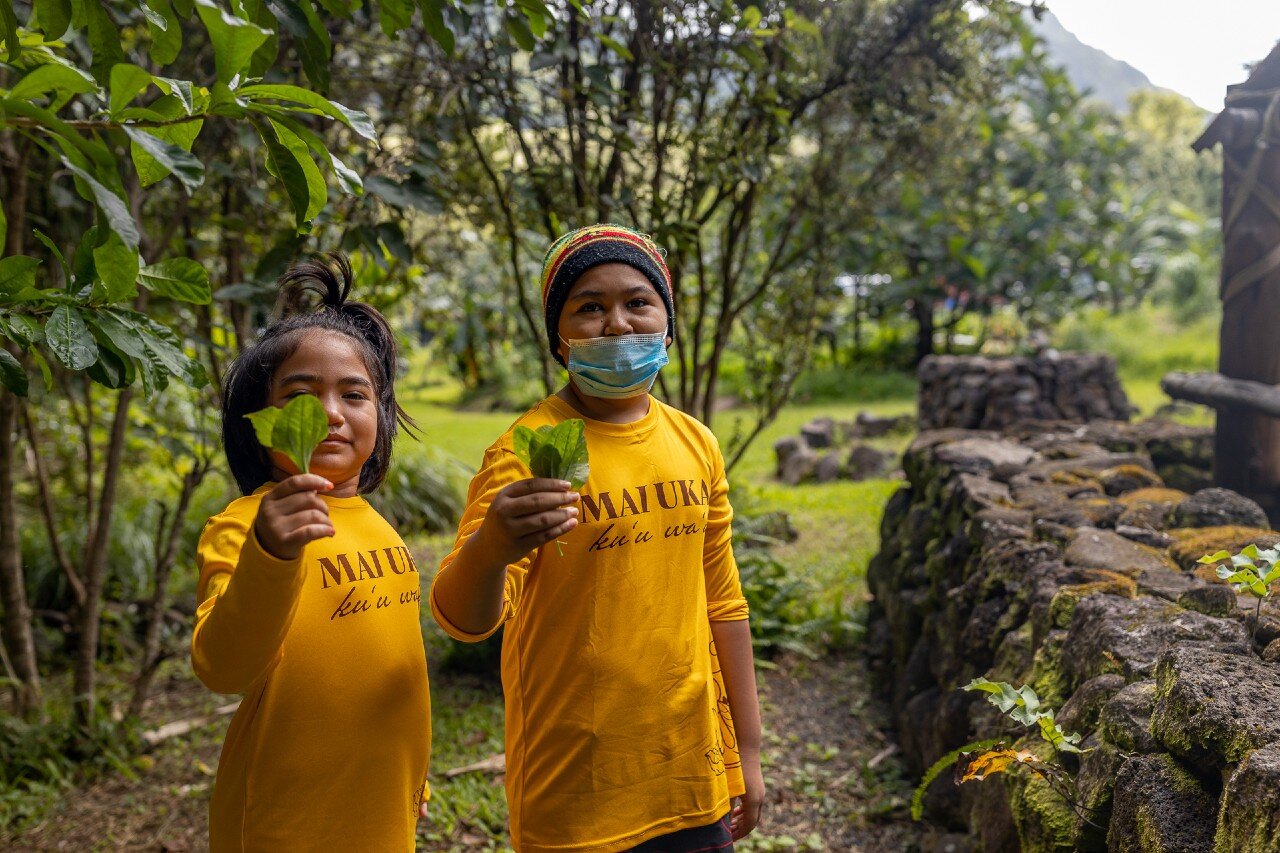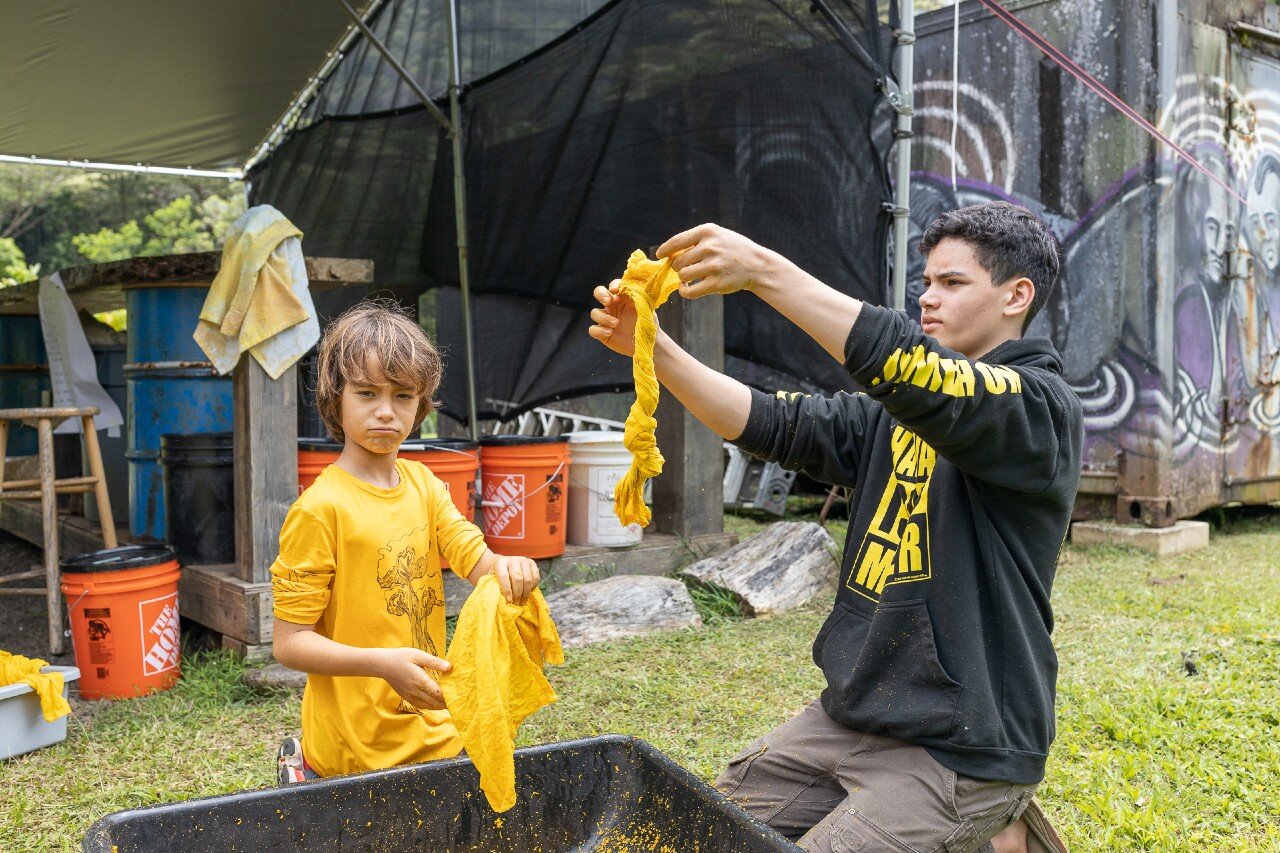Mai Uka Ku’u Wa’a:
Perpetuating Hawaiian Cultural Knowledge and Healing through the Lessons of the Canoe
With adze in hand, the kālai waʻa or canoe carver is the person who shapes the world. To become a kālai waʻa, one must understand all the different elements of ocean, sky and forest. One must know how to form the tool and how to use the tool. One must know how to fish, for the canoe is a vessel that feeds its people. One must know lāʻau lapaʻau as the die used on the living body of the canoe is traditionally made with plants. And when navigating out at sea, the kālai waʻa must know how to take care of the crew in the event of injury or illness. All of these pieces of knowledge are woven together in this one tradition of the canoe and it is through these teachings that Hoʻoulu ʻĀina offers education around sovereignty.
The success of the Mai Uka Kuʻu Waʻa has been in the way that basic concepts, such as carving, plant medicine, chant, prayer, and the protocols of harvesting and entering the forest can have such deeper meaning and impact. For instance, using the wood of the albizia, typically vilified as invasive and therefore unwanted, is a valuable reminder that irrespective of being deemed good or bad, wherever we are in the world, we can be useful. The Indigenous philosophy practiced at Ho’oulu ‘Aina is to take the albizia out in order to restore the native forests, ensuring that it does not go to waste. The Mai Uka participants do masterful work with their adzes, having learned over the course of two summers how to carve and sail their own small canoes shaped like a koa leaf. Our program has gathered many stories, including how one six-year-old keiki, after carving all summer, went and taught his father how to carve for the first time. After learning to infuse the oil of a plant known to have medicinal properties, another twelve-year-old boy, asked for the plant to take home so that he could apply it on his mother who had damaged a ligament in her knee because of hula. She felt so loved. It is in the simplicity of these lessons that can have such a powerful and lasting effect on the complexity of relationships.
Mai Uka Kuʻu Waʻa, meaning “my canoe comes from the uplands,” is a KKV program at Ho’oulu ‘Aina born from the desire and responsibility to bring the mana of the uplands down throughout the whole ahupuaʻa of Kalihi and beyond. The youth of the community engage in Hawaiian culture and health programming in forest, farm, and ocean while focusing on uka (upland) and kai (lowland) connections through the waʻa. Guided by marine genealogy and a long history of navigation, these lessons center on the culture of the canoe and the making of the canoe and are intentionally designed to create opportunities for our young ones to learn, apply, and bring that rich knowledge to create healing and strengthen relationships within their own families.
Each child’s unique gifts are meant to be cultivated, acknowledged, honoredand applied; these gifts are then transferred, replicated and expanded within the family network. Approximately 30 to 40 participants are currently enrolled in Mai Uka Kuʻu Waʻa, with 8 to 13 being the official enrollment ages. When siblings get involved with the learning and teaching, that number grows to 60 youth, who are as young as 5 and going up 16.This leads to 100 or so family members, and just over 200 people as the broader impact. Starting with the swing of one child’s adze, great things can happen and with that, the journey of the canoe creates a far-reaching ripple effect on health and healing in our communities.
As the shift occurred from a large group of single-child engagement to participation in small family biomes due to COVID-19, Mai Uka Kuʻu Waʻa has seen an even greater affirmation that the investment of the values put into one child has exponential reward. The program provides the opportunity for those values to be nurtured through sharing stories, preparing food, and sometimes asking for help and to be extended to wider family. While the matriarch might generally be in charge of learning-related activities, we must remember that learning and teaching are reciprocal and that education and true knowledge start at home. When a participant is sent home with a recipe for green papaya soup, papa can have a part in cooking the meal. When deciding what to do with the plants and soil, it’s a good idea to ask grandma since she’s the gardener in the family. Aunties, uncles, older siblings and cousins are perfect for helping the little ones learn to read.









